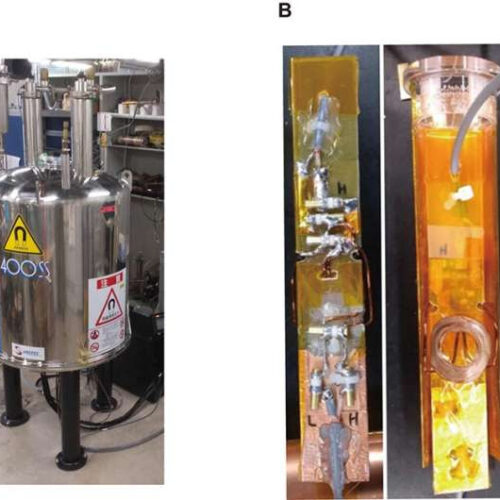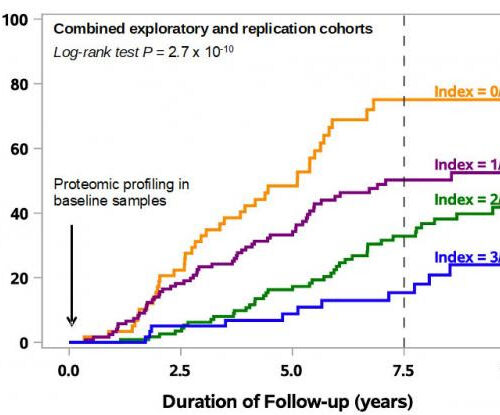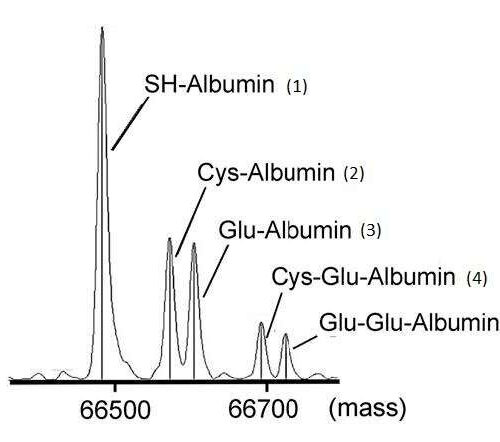Researchers identify signaling mechanism that damages cells in diabetic kidney diseaseUpregulation of FXII correlates with impaired kidney function in human DKD. Credit: Nature Communications (2024). DOI: 10.1038/s41467-024-52214-8Diabetic kidney disease, a complication of diabetes, is considered the leading cause of chronic kidney disease and kidney failure worldwide. It is associated with changes in the structure and...
Tag: <span>Diabetic kidney disease</span>
Inducing a gene that informs cell signaling could halt diabetic kidney disease, study shows
Immunofluorescence image of the proximal tubule (in green), surrounding the glomeruli in the kidney with the activated calcium/calmodulin-dependent protein kinase 1 (CaMK1D), in red. Blue indicates cells in the kidney. Credit: Sandeep K. Mallipattu and Nehaben A. Gujarati New research by Stony Brook Medicine nephrology specialists that centers on targeting key cellular signaling between two...
Advanced MRI technique unleashes new approach for diagnosing diabetic kidney disease
by Niigata University (A) 9.4-T vertical standard-bore super-conducting magnet, (B) The 1H and 23 Na surface coil. Credit: Kidney360 (2023). DOI: 10.34067/KID.0000000000000072 The gold standard test for predicting the onset of diabetic kidney disease is the albuminuria test. However, detecting albuminuria alone has limited sensitivity and specificity in end-stage renal failure with a decreased estimated glomerular filtration rate. This is...
New way to reduce progression of diabetic kidney disease discovered
by University of Bristol A glomerulus (kidney filter) from a patient with diabetes. The diabetic patient has no visible glycocalyx within the blood vessels. Credit: University of Bristol A new method to reduce the progression of diabetic kidney disease, affecting 40% of people with diabetes, has been discovered by scientists. The University of Bristol-led study...
Newly discovered proteins protect against progression of diabetic kidney disease
by Joslin Diabetes Center Credit: Unsplash/CC0 Public Domain Elevated levels of three specific circulating proteins are associated with protection against kidney failure in diabetes, according to research from the Joslin Diabetes Center that will be published on 30th June in Science Translational Medicine. “As well as acting as biomarkers for advancing kidney disease risk in diabetes,...
Newly discovered proteins protect against progression of diabetic kidney disease
JOSLIN DIABETES CENTER IMAGE: THE CUMULATIVE INCIDENCE OF END-STAGE RENAL DISEASE (ESRD) ACCORDING TO INDEX OF PROTECTION OF THREE PROTEINS, INDEX=0/3 INDICATES NO PROTECTION WHEREAS INDEX=3/3 INDICATES FULL PROTECTION. CREDIT: COPYRIGHT JOSLIN DIABETES CENTER Elevated levels of three specific circulating proteins are associated with protection against kidney failure in diabetes, according to research from the...
Cysteinylated albumin new early diagnostic marker for diabetic kidney disease
by Kumamoto University Mass spectrometer analysis of blood serum in diabetic patients. 1) SH-Albumin (unmodified), 2) Cys-Albumin (cysteine adduct (oxidized albumin), 3) Glu-Albumin (sugar adduct), 4) Cys-Glu-Albumin (simultaneous cysteine and sugar adduct), 5) Glu-Glu-Albumin (two sugar adducts). Credit: Associate Professor Hiroshi Watanabe A research group from Kumamoto University, Japan has discovered that cysteinylated albumin (oxidized albumin)...
Clinical trial shows experimental drug safely slows progression of diabetic kidney disease
by University of Chicago Medical Center The findings, simultaneously published in the New England Journal of Medicine and presented at the American Society of Nephrology’s Kidney Week 2020 conference, show the investigational drug finerenone had tangible renal and cardiovascular benefits for patients with chronic kidney disease and type 2 diabetes. The 5,700-person phase III trial was led by...
New biomarker could better predict diabetic kidney disease
by Tyrel Linkhorn, University of Toledo Clinicians may soon have a better way to predict which of their diabetic patients are most likely to develop kidney disease, allowing for earlier interventions that keep patients off lifelong dialysis or transplant waiting lists. In a study led by Dr. Rujun Gong, professor and director of kidney research...
Liquid-biopsy microRNA biomarkers to predict risk for diabetic kidney disease
A recent study from the Madras Diabetes Research Foundation, Chennai, India, and University of Lyon, France, brings new hope for using ‘liquid-biopsy’ exosomal microRNA biomarkers (miRNAs) from urine to predict risk for kidney disease in diabetes patients. Diabetic kidney disease is the leading cause of end-stage renal disease in developed as well as developing countries....
- 1
- 2







